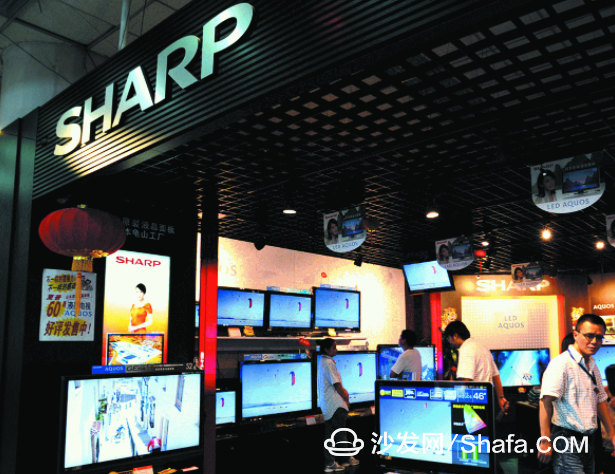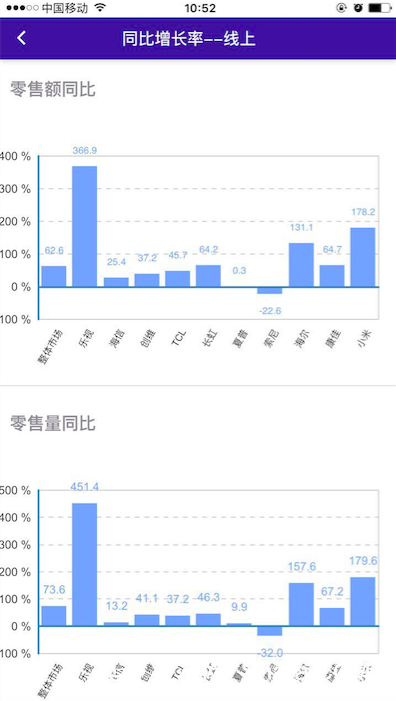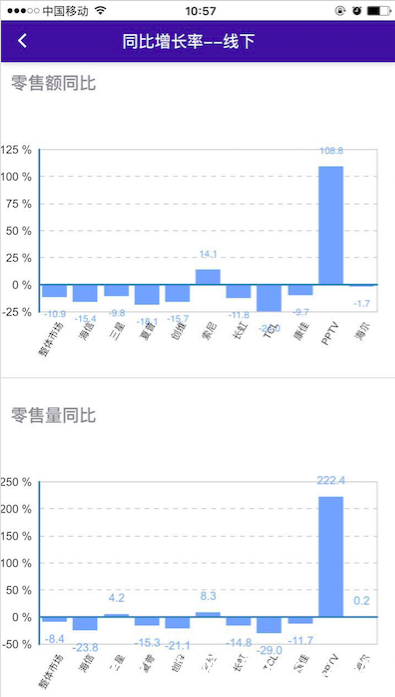Proudiao is not a market-leading capital. It is not synchronized with the times and will be recaptured by the market. The rise of the TV industry from Japanese companies to Korean companies to Chinese companies has already explained the problem. With the changes in the television industry, Sharp's ups and downs from brilliant to acquired are considered to be typical.

Sharp decline with the era of Japanese companies
It cannot be denied that the Japanese color TV brand's contribution to the TV industry is in terms of quality, display technology, technology, and manufacturing. In the era of CRT, global television overlords like Sony, Panasonic, Sharp and other Japanese companies were among the world's top technology companies without exception.
Even when it came to the era of liquid crystals dominated by Korea's Hutch and Hutch, Sharp had once been brilliant. He was the "father of liquid crystals" who was the first to have a sixth-generation line, an eighth-generation line, and a tenth-generation line. In 2010, Sharp once had 11% market share in the global LCD market. Its "Elite" TV series has a strong brand effect and is also a representative of high-end TV camps.
However, in the era of smart TV, under the impact of South Korea's Hutchison Samsung and LG, as well as Chinese TV brands, they did not keep up with the development of smart TV and stick to their existing products and value systems. Japanese TV companies have been deteriorating, including Sharp. Taking the European market as an example, Sharp's market share in 2013 has remained only 1.6%, and some countries only have less than 1%.
Of course, in order to continue its operations, Sharp has also made a lot of efforts to perform some actions that appear to the outside world as "halting", for example, selling Polish factories to Universal Media Corporation (UMC); in the North American market, Hisense is The television business of the Sharp Mexico plant and the United States branch took over, and Sharp's declining general trend has not been reversed.
Sharp's decline is a microcosm of Japanese color TV companies. In addition to Sharp, Toshiba TV has already been acquired by Skyworth, and Sony has also fallen into a loss, and Panasonic has already been on the decline. Analysts pointed out long ago that in the highly competitive Chinese market, Japanese brands generally have too rigid strategic pricing, resulting in Japanese brands operating poorly in China. Coupled with the strong rise of China's Internet brands, unique innovations in pricing strategies, operating methods, and profit models have made Japanese companies difficult to parry.
From the perspective of the global market, the Sharp TV brand has reached the historical low point and was acquired as the best result of the brand's continued life.
Sharper attention after Sharp's "sell out"
When it comes to Sharp, besides old users who have used the "master machine" for many years or more, they have been forgotten by most young people in the smart TV era. Maintaining the attention of the Sharp brand, in addition to negative reports such as the decline in market share, the sale of the headquarters building, and the closing/sale of overseas factories, Mr. Gou was congratulated and insisted for four years. After being repeatedly examined, he was successfully injected capital in August of this year. Sharp was Foxconn. Swallowed and completely changed the owner.
According to the analysis, the combination of Foxconn and Sharp is beneficial to both parties. On the one hand, Foxconn wants to infiltrate from the single OEM model to the upstream of TV products and panels to build a diversified industrial model and gain more profit. On the other hand, for Sharp, Foxconn’s capital injection has regained attention and allowed the brand to continue.
In September of this year, Sharp issued two announcements one after another. The first was to buy back the original head office building in the center of Osaka and boost staff morale. The second is the indication of investment intentions for Slovak TV company UMC, indicating its determination to return to the European television market.
In addition, Foxconn has brought Sharp's new "Internet" position to the mainland market where innovation is booming. On October 13th, at the Yunnan Yunqi Conference in 2016, Terry Gou said that New Sharp will be a brand new brand to achieve + Internet. This time from the living room, cooperation with Ali will begin, and will open the door to families.
Mr. Gou’s desire is good. Foxconn has also seen Sharp’s many problems in the field of smart TV and the current trend of the development of smart TV industry—Internetization+industry alliance. It is no longer a single fight.
Double Eleven encounters "disaster," Sharp is too cool to think.
For Sharp, the biggest hope is a rebound after reaching the bottom. With strong support from Gou, Ming Sharp saw signs of recovery from the heat of concern. However, Sharp wants to prove that he is still very good-natured, too want to get market attention, too want to compete with the Internet brand in marketing, causing the "rebound" step is too anxious.
According to media reports, Sharp’s volume of a 70-inch high-end 4K TV with a price of 13,999 yuan soared from 3,677 to 4,457 in just 18 minutes from 17:35 to 17:53. In the 18 minutes it sold 780 units, and this time is exactly when people will be coming off work.
Sharp's sales of a 45-inch smart TV, which sells for $2,399, has also skyrocketed. It sold 455 units at 18:09, and sales reached 2,565 units at 18:33. This means that this TV sold 2,110 units in just 24 minutes and sold 87.9 units in an average of 1 minute. In just 5 minutes, it has reached the total sales of the store's first 18 hours, and this time period is also Peak night off work. This "abnormal" increase in sales has caused many people to fail to understand, and even been questioned as to the behavior of the list.
Although e-commerce brush orders are not new, they have even lost the attention value of news reports. However, for the current Sharp TV's market conditions and high-profile announcement of the return, the outspoken sales are indeed unconvincing, and the media raised the question of brush orders is understandable.
However, it can be seen that the importance of the Chinese market for Sharp, and after Foxconn took over Sharp, changed the past solidification and rigid, more want to change through their own, into the new elements of the Internet, which is the traditional Japanese enterprises can not imagine.
Of course, in the face of an increasingly saturated market, as well as the insanely competitive marketing methods and aggressive pricing strategies, Sharp, who has gone from high-end to “popularization,†has lost its previous high cold and become uneasy.
Sharp is not difficult to knock over his body
With funds, strategies, and improved influence, it will definitely allow Sharp to reshape the glory of the past.
First of all, from the perspective of brand influence, Sharp can be called the "antique" of the television industry. With the increasing quality of Internet brands and continuous marketing interaction, Sharp is not the first choice for young people. Although backed by Foxconn, Terry Gou tried to make a transition. However, if you want to get rid of your brand name and your brand's vitality is not overnight, and after the Chinese TV brand pattern has entered a stable period, there will not be much time left for Sharp.
Second, from the market share, Sharp has become a runner. Combined with the data from the 45th week of Yikang, the online: Sharp retail sales growth rate was 0.3% year-on-year, ranking the second lowest among the 10 TV brands and lower than the 62.6% growth rate of the overall market. The year-on-year growth rate of retail sales was 9.9%, which was also the second lowest among the ten TV brands, which was far lower than the overall market of 73.6%.

Offline: Retail sales declined by 10.9% overall, of which Sharp declined 18.1%, ranking second lowest. In terms of retail sales, the overall market fell by 8.4%, while Sharp's fell by 15.3%.

Thirdly, from the aspect of product marketing, the era of smart TV has evolved from pure hardware competition to strong content, providing consumers with no longer a cold hardware, but an aggregation of education, life, and entertainment, with home Internet services as the The entrance carries trillion-scale home Internet scenarios. Even if Sharp TV takes the “Internet†approach in brand positioning, it is in a weaker position than Chinese Internet TV brands.
In the end, business strategies need to be adjusted. In the past, television was a technology-intensive industry. All major manufacturers are convinced that if they are willing to spend time studying technology, they will certainly be able to pay off. Nowadays, the technical value of television is not the only factor that determines the market cost. The content service of the framework in the television ecosystem chain largely prevails. This requires Sharp to re-establish a set of effective market business strategies, based on technology, expand operations and industrial chain integration, and provide consumers with a wide range of audio-visual services.
Smart TV/box information can focus on smart TV information network sofa butler (http://), China's influential TV box and smart TV website, providing information, communication, etc. on TV boxes, smart TVs, smart TV software, etc. Answering questions.
Ultra Thin Battery,Ultra Slim Battery Pack,Thin Lithium Ion Battery,Ultra Light Optics Battery,Polymer lithium battery,Cylindrical Lithium Battery
Langrui Energy (Shenzhen) Co.,Ltd , https://www.langruibattery.com